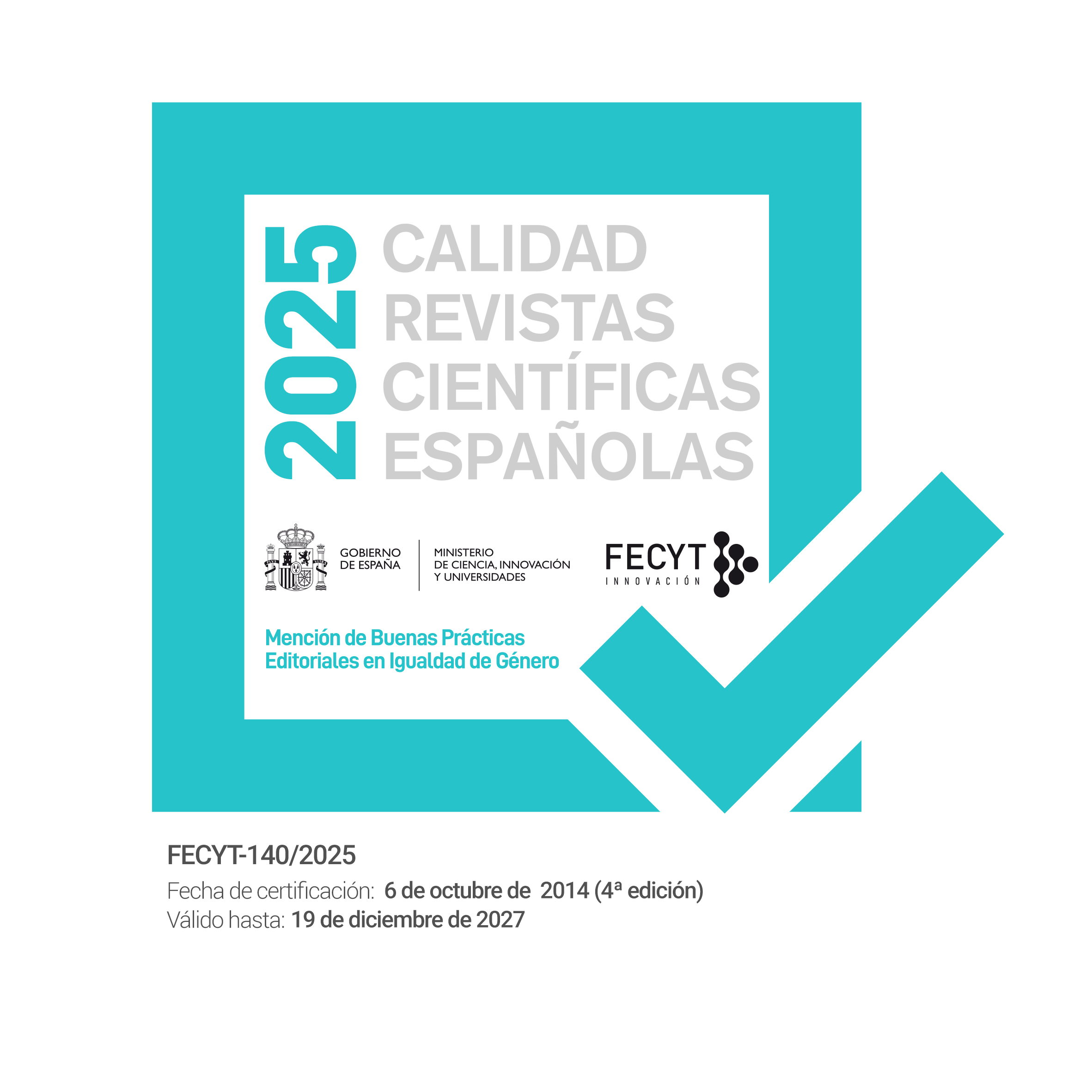Immersive Virtual Reality to improve competence to manage classroom climate in secondary schools
DOI:
https://doi.org/10.5944/educxx1.33418Keywords:
preservice teacher education, classroom management, classroom environment, virtual reality, secondary educationAbstract
This article describes the Didascalia Virtual-Classroom system, an immersive virtual reality environment (IVRE) that allows teachers to experience and reflect on conflict management in the secondary school classroom. In the context of a master's degree at a Spanish university, 162 preservice teachers (67.3% female, age average = 27.3) participated in a Responsible Research and Innovation experience to assess IVRE usefulness in fostering learning about conflict management in preservice teacher education, while reflecting about their perceived self-efficacy on this teaching competence. Data were collected through questionnaires, interviews and focus groups and subsequently analysed using statistical tests and content analysis. Our results confirm that preservice teachers perceive limitations in their self-efficacy for classroom management. On the other hand, the thematic analysis of the focus groups allowed us to identify opportunities and advantages offered by this tool to foster the learning of conflict management competence. Overall, participants perceived that the Didascalia-VC environment could be very useful in initial training and highlighted the immersive power and realistic content as the main advantageous features. In addition, all participants recognized that the experiences provided by this IVRE can foster reflective and critical learning about effective classroom management. At the end of the article, some ideas for further research and improvement of the development of this tool are suggested, as well as its pedagogic potentials for use in the master's degree for secondary school teachers currently being carried out in Spanish universities.
Downloads
References
Alonso, S., López, D., Puente, A., Romero, A., Álvarez, I. M., & Manero, B. (2021). Evaluation of a motion capture and virtual reality classroom for secondary school teacher training. In M. M. T. Rodrigo, S. Iyer, & A. Mitrovic (Eds.), Proceedings of the 29th International Conference on Computers in Education (pp. 327-332). Asia-Pacific Society for Computers in Education. https://icce2021.apsce.net/wp-content/uploads/2021/12/ICCE2021-Vol.I-PP.-327-332.pdf
Alvarez, I.M., Manero, B., Modoro, A., Suñé-Soler, N., & Henao, C. (2022). Material complementario. https://doi.org/10.5281/zenodo.7079663
Bocos-Corredor, M., López-García, Á., & Díaz-Nieto, A. (2020). Classroom VR: a VR game to improve communication skills in secondary-school teachers. [Trabajo Fin de Grado]. E-Prints Complutense. https://eprints.ucm.es/id/eprint/61936/
Ceballos, E., Rodríguez, B., Correa, A-D., & Rodríguez, J. (2016). La evaluación situacional de los conflictos: Construcción y análisis del cuestionario de estrategias y metas de resolución de conflictos escolares. Educación XX1, 19(2), 273-292. https://doi.org/10.5944/educxx1.16467
Chang, M-L., & Taxer, J. (2020). Teacher emotion regulation strategies in response to classroom misbehaviour. Teachers and Teaching, 27, 353-369. https://doi.org/10.1080/13540602.2020.1740198
Chi-Yuan, C. (2022). Immersive virtual reality to train preservice teachers in managing students’ challenging behaviours: A pilot study. British Journal of Educational Technology, 53(4), 998-1024. https://doi.org/10.1111/bjet.13181
Clarà, M., Mauri, T., Colomina, R, & Onrubia, J. (2019). Supporting collaborative reflection in teacher education: a case study. European Journal of Teacher Education, 42 (2), 175-191. https://doi.org/10.1080/02619768.2019.1576626
Consejo Escolar de la Comunidad de Madrid (2022). Informe 2021 sobre el sistema educativo en la Comunidad de Madrid. Curso 2019-2020. Consejería de Educación, Universidades, Ciencia y Portavocía. https://www.comunidad.madrid/publicacion/1354866027557
Creswell, J. W. (2002). Educational research: Planning, conducting, and evaluating quantitative and qualitative research. Pearson.
Doyle, W. (2006). Ecological approaches to classroom management. In C. M. Evertson & C. S. Weinstein (Eds.), Handbook of classroom management: Research, practice, and contemporary issues (pp. 97-125). Erlbaum.
Huang, L., Wang, N., Yang, Z., & Guo, J. (2022). Emotional computing at the Edge to support effective IoE applications in future classrooms. Proceedings of the 2022 International Conference on Advanced Learning Technologies. ICALT 2022, 400-402. https://doi.org/10.1109/ICALT55010.2022.00124
Huang, Y., Richter, E., Kleickmann, T., Wiepke, A., & Richter, D. (2021). Classroom complexity affects student teachers’ behavior in a VR classroom. Computer & Education, 163, 104100. https://doi.org/10.1016/j.compedu.2020.104100
Iglesias-Díaz, P., & Romero-Pérez, C., (2021). Aulas afectivas e inclusivas y bienestar adolescente: una revisión sistemática. Educación XX1, 24(2), 305-350. https://doi.org/10.5944/educXX1.28705
Inbar-Furst, H., Ayvazo, S., Yariv, E., & Aljadeff, E. (2021). Inservice teachers’ selfreported strategies to address behavioral engagement in the classroom. Teaching and Teacher Education, 106, 103466. https://doi.org/10.1016/j.tate.2021.103466
Keller, M.M, & Becker, E.S. (2020). Teachers’ emotions and emotional authenticity: do they matter to students’ emotional responses in the classroom? Teachers and Teaching, 27(5), 404-422. https://doi.org/10.1080/13540602.2020.1834380
Luhmann, N. (1982). The world society as a social system. International Journal of General Systems, 8, 131–138. https://doi.org/10.1080/03081078208547442
Manero, B., Álvarez, I.M., Romero, A., & Cárdenas, M. (2022). Adopting an immersive virtual reality system to enhance pre-service teachers’ communicative competence. (Eds.), In M. Chang, N-S. Chen, M. Dascalu, D.G. Sampson, A. Tlili, & S. Trausan-Matu, Proceedings of the 2022 International Conference on Advanced Learning Technologies. ICALT 2022 (pp. 317-321). IEEE Computer Society Conference Publishing Services (CPS). https://ieeexplore.ieee.org/abstract/document/9853845
Martínez., M.B., Chacón, J.C., Díaz-Aguado, M.J., Martín, J., & Martínez, R. (2020). Disruptive behavior in compulsory secondary education classrooms: a multi-informant analysis of the perception of teachers and students. Pulso. Revista de educación, 43, 15-34. https://revistas.cardenalcisneros.es/article/view/4793/5030
Masó, I. (2022). Los conflictos en el aula de secundaria y las competencias comunicativas del profesorado. En J.A. Marín, J.C. de la Cruz, S. Pozo y G. Gómez (Eds). Investigación e innovación educativa frente a los retos para el desarrollo sostenible (pp. 1383-1398). Dylinson.
McGrath, K. F. & Van Bergen, P. (2019). Attributions and emotional competence: why some teachers experience close relationships with disruptive students (and others don’t). Teachers and Teaching, 25(3), 334-357. https://doi.org/10.1080/2019.1569511
Mills, J., Bonner, A., & Francis, K. (2006). Adopting a constructivist approach to grounded theory: Implications for research design. International Journal of Nursing Practice, 12(1), 8-13. https://doi.org/10.1111/j.1440-172X.2006.00543.x
Morgan, D. L. (2002). Focus group interviewing. In J. F. Gubrium, & J. A. Holstein (Eds.), Handbook of interviewing research: Context & Method (pp. 141-159). Sage Publications Inc.
OECD (2020). TALIS 2018 Results (Volume II): Teachers and school leaders as valued professionals. OECD Publishing. https://doi.org/10.1787/19cf08df-en
Sarcedo-Gorgoso, M.C., Santos-González, M. C., & Rego-Agraso, L. (2020). Las competencias docentes en la formación del profesorado de educación secundaria. Profesorado. Revista de Currículum y Formación de Profesorado, 24(3),401-421. https://doi.org/10.30827/profesorado.v24i3.8260
Schön, D. A. (1983). The reflective practitioner. Basic Books.
Slater, E.V & Main, S. (2020). A measure of classroom management: Validation of a pre-service teacher self-efficacy scale. Journal of Education for Teaching, 46(5), 616-630. https://doi.org/10.1080/02607476.2020.1770579
Slater, M. (2018). Immersion and the illusion of presence in virtual reality. British Journal of Psychology, 109(3), 431-433. https://doi.org/10.1111/bjop.12305
Smutny, P. (2022). Learning with virtual reality: a market analysis of educational and training applications. Interactive Learning Environments. https://doi.org/10.1080/10494820.2022.2028856
Vygotski, L. S. (1983). Obras escogidas. Vol. III. Problemas del desarrollo de la psique. Editorial Pedagógica.
Wang, M. T., Degol, J. L., Amemiya, J., Parr, A., & Guo, J. (2020). Classroom climate and children’s academic and psychological wellbeing: A systematic review and meta-analysis. Developmental Review, 57, 100912. https://doi.org/10.1016/j.dr.2020.100912
Winstone, N.E., Nash, R.A., Parker, M.P. & Rowntree, J. (2017). Supporting learners’ agentic engagement with feedback: a systematic review and a taxonomy of recipience processes. Educational Psychologist, 52(1), 17-37. https://doi.org/10.1080/00461520.2016.1207538

Downloads
Published
How to Cite
Issue
Section
License
Copyright (c) 2022 Ibis M. Álvarez , Borja Manero, Andy Morodo, Núria Suñé-Soler, Claudia Henao

This work is licensed under a Creative Commons Attribution-NonCommercial 4.0 International License.
Educación XX1 is published under a Creative Commons Attribution-NonCommercial 4.0 (CC BY-NC 4.0)










